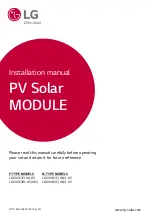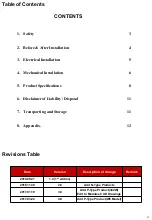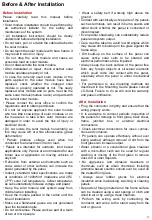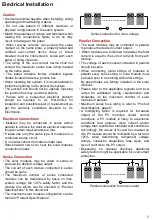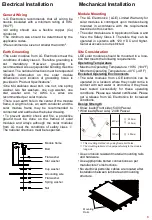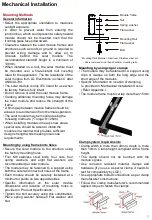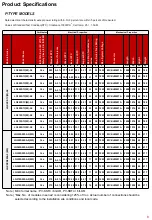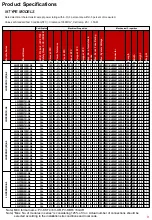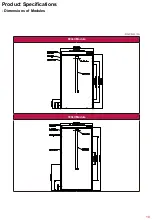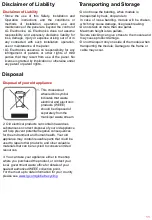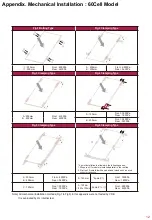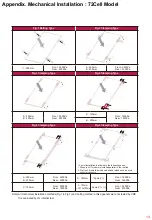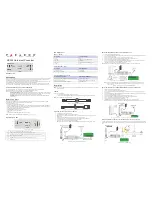
Before & After Installation
Before Installation
Please
carefully
read
this
manual
before
installation.
• Solar module installation should be performed by
an authorized installer for the safety and
maintenance of the system.
• All installation instructions should be clearly
understood before attempting installation.
• Do not twist, pull, or scratch the cable attached to
the solar module.
• Do not touch the solar module with bare hands. It
may result in a burn or injury.
• Do not drop the solar module and cause an
excessive load on solar module.
• Do not disassemble the solar module.
• After installation or repair, check whether solar
module operates properly or not.
• In case the currently used solar module or the
parts applied to the solar module have been
replaced, check whether the changed solar
module is properly operated or not. The newly
replaced solar module and its parts must be the
same solar module(module name) and parts with
the current solar module.
• Please contact the local office to confirm the
regulations and to obtain permission.
• Do not let anyone approach the solar module
who has little knowledge of solar modules or on
the measures to take when solar modules are
damaged in order to avoid the risk of injury or
electrical shock.
• Do not locate the solar module horizontally, as
this may cause dirt or white efflorescence (glass
deformation)
• Panels produce voltage even when not
connected to an electrical circuit or load.
• Panels are intended for outdoors, land based
applications only. Panels are not intended for use
indoor use or application on moving vehicles of
any kind.
• Reflection from external environments such as
snow, water or other surfaces can increase the
power generated by the panel.
• Industry standard rated specifications are made
at conditions of 1000W/m
2
irradiance and 25
°
C
(77ºF) solar cell temperature. Colder temperatur-
es can substantially increase voltage and power.
• Keep the solar module and system away from
children when installing.
• Keep the module packed in the carton until the
time of installation.
• Make sure flammable gases are not generated
near the installation site.
• Do not work alone. Please work as part of a team
of two or more people.
• Wear a safety belt if working high above the
ground.
• Contact with electrically active parts of the panels,
such as terminals, can result in burns, sparks and
lethal shock whether the panel is connected or
disconnected.
• Even partial shadowing can substantially reduce
panel and system output.
• Care must be taken to avoid low tilt angles which
may cause dirt to buildup on the glass against the
frame edge.
• Dirt build-up on the surface of the panel can
cause active solar cells to be shaded and
electrical performance to be impaired.
• Always keep the back surface of the panel free
from any foreign objects or structural elements
which could come into contact with the panel,
especially when the panel is under mechanical
load.
• For permission to use mounting methods not
described in the Mounting Guide please consult
LG Solar. Failure to do so will void the warranty
and panel certification.
After Installation
•
Plug the connector in tightly and ensure that the
wiring properly works.
• It is advisable to conduct periodic inspection of
the panels for damage to front glass, back sheet,
frame, junction box, or external electrical
connections.
• Check electrical connections for loose connec-
tions and corrosion.
• PV panels can operate effectively without ever
being washed, although removal of dirt from the
front glass can increase output.
• Water, ethanol or a conventional glass cleanser
with a micro-fiber cloth can be used for regular
washing or rinsing of the front glass to remove
dust, dirt or other deposits.
• No aggressive and abrasive cleansers or
chemicals such as alkali chemicals including
ammonia based solution should ever be used on
the treated front glass.
• Always wear rubber gloves for electrical
insulation while maintaining, washing or cleaning
panels.
• Deposits of foreign material on the frame surface
can be cleaned using a wet sponge or cloth and
dried in air or by using a clean chamois.
• Perform the wiring work by connecting the
connector and wires to the stand away from the
roof or ground.
4

